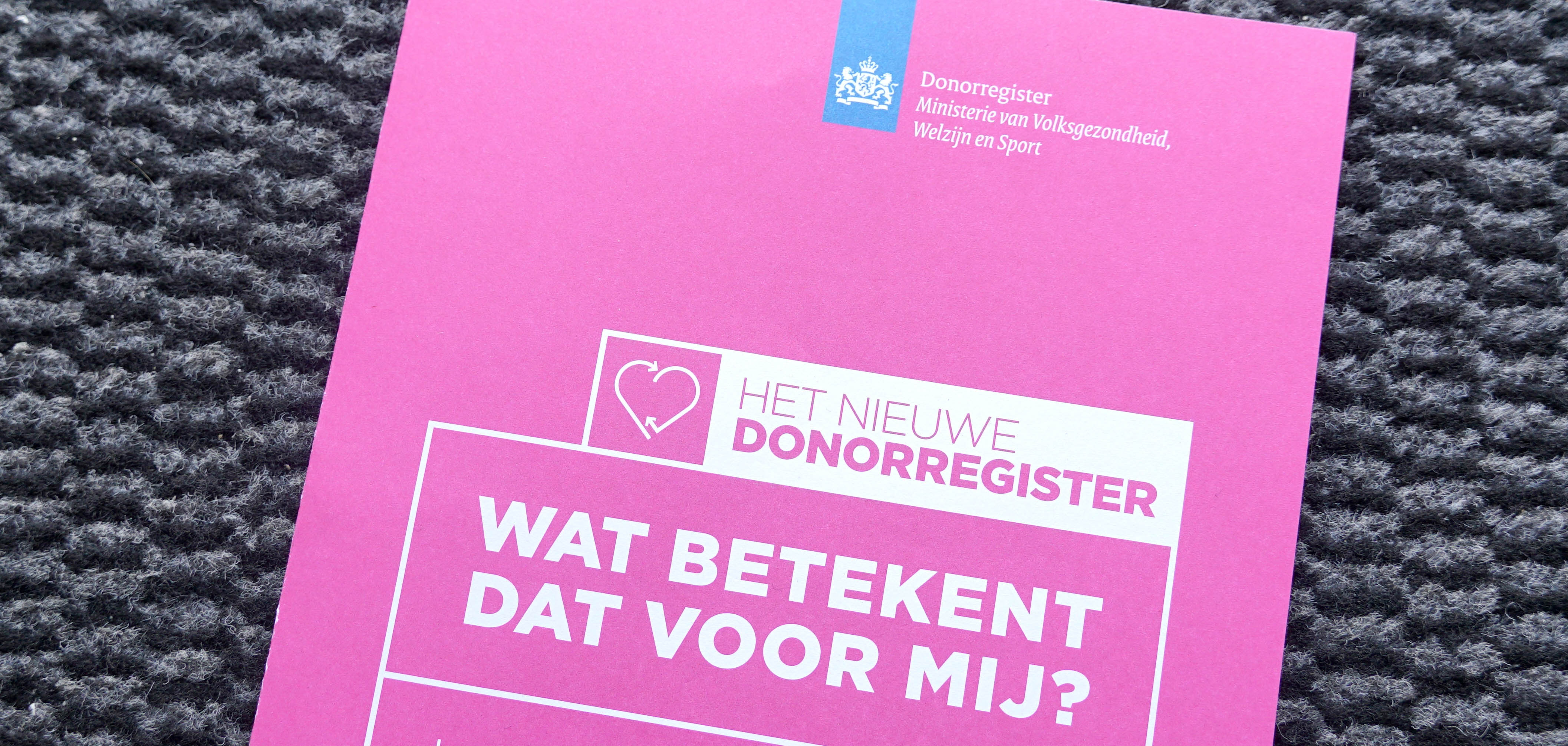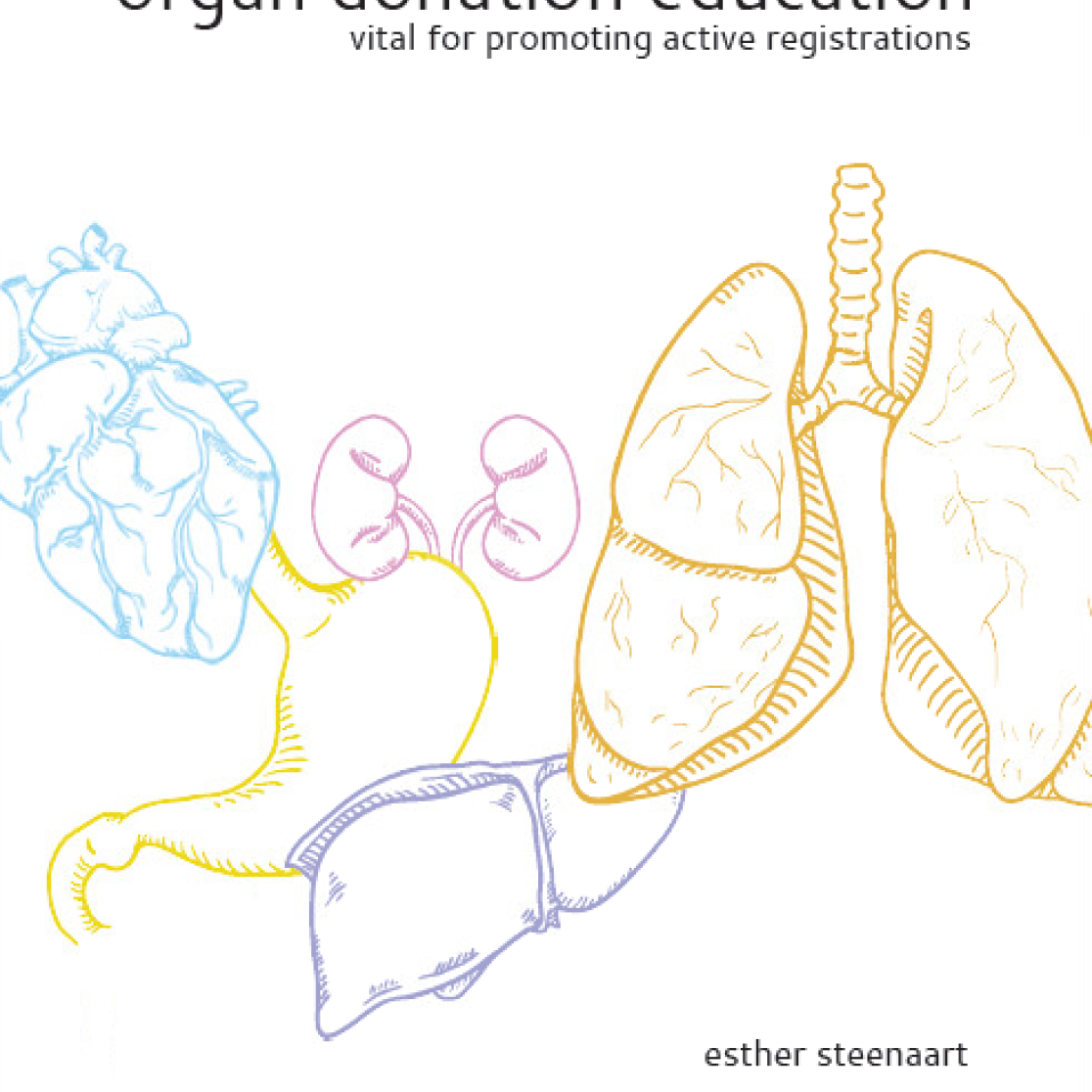Organ donation education: Vital for promoting active registrations

Helping adolescents in making a decision
Shortage in the availability of organs for transplantation is an important public health challenge. When adolescents turn 18, they are expected to make a decision about organ donation, but many of them are not ready to do this. Thinking about death can be scary and for many it is the first time they even hear about organ donation. Esther Steenaart and her colleagues developed an interactive educational programme for adolescents."The goal of our project is to support adolescents in making a decision - whatever that decision might be - and to provide them with the tools they need to be able to register that decision".
Involved research line
- Promoting Health and Personalised care
School-based organ donation education
"As the large majority of 18-year-olds still attend education, we decided to develop a school-based organ donation educational programme. The programme is web-based and consists of 2 lessons of about 50 minutes each. It starts with a plenary lesson in which students become familiar with the topic and start forming their opinion about it. This is done through four short videos on the website that address different aspects of organ donation, followed by groups discussions. In the second lesson, students start with a quiz focusing on their personal beliefs about organ donation. They can do this on a computer, but also on a tablet or their smartphone. They receive tailored feedback on their answers to tackle any misconceptions they might have. Finally, they practice with filling out a registration form".
The programme was originally developed for high school students, but Esther Steenaart and team members decided to adapt it to a lower-educated target group. "People at lower educational levels were not properly reached by other organ donation initiatives yet and they were less often registered than higher-educated people. We made changes to the content of the program, simplified the language and made the entire program a little shorter. The adapted version of the program was implemented in schools for vocational education (MBO scholen) throughout the Netherlands. Teachers that taught a course on Citizenship provided the program to their students. They played an important role in the implementation and success of the program".
Involved partners
The program was found to be successful in increasing the proportion of students who are intending to register a decision. Students were also more often planning to talk to their family or friends about organ donation, had more knowledge about it and their misconceptions decreased. Both teachers and students were enthusiastic about the program. Teachers agreed that the program was very compatible with their other teaching activities, but some found it difficult to prioritize the topic of organ donation. It also became clear how diverse the student population within vocational education actually is.
Steenaart: 'Teachers often made on-the-spot adaptations to fit their students’ capabilities and needs better. We encourage these adaptations and are planning to provide them with different methods of differentiation in the future.
In the end, the results of our research show possibilities to disseminate the program on a larger scale and being able to reach a large group of adolescents with education. This could be an important step towards higher registration rates in this group".
New Donor Act
The research about this educational program was performed in the turbulent time of an organ donation law change. In summer 2020, a no-objection system was implemented in the Netherlands. In short, this means that all citizens are asked to make a decision. If they fail to do so, they will be recorded with a no-objection registration. Steenaart: "In principle, this means that organs could go to a patient, but in practice, family members could still object to this. This makes the law confusing for many people and triggered new questions for our team. This shows how our research impacts society, but developments in our society also influence the research we do".
"We found out that people make very different decisions under the new no-objection system compared to the former system (the opt-in system). Where the new system could potentially lead to more donors, the ‘old’ system seems better in terms of preserving people’s autonomy and motivating people to make an active decision. Within the new law, not making a decision is no longer an option, so educational initiatives are more important than ever. Education in a school setting could be an important part of this, but is not enough on its own. More efforts are needed to proactively reach vulnerable groups and to contribute to more informed decisions and more active registrations under the new donor Act".
